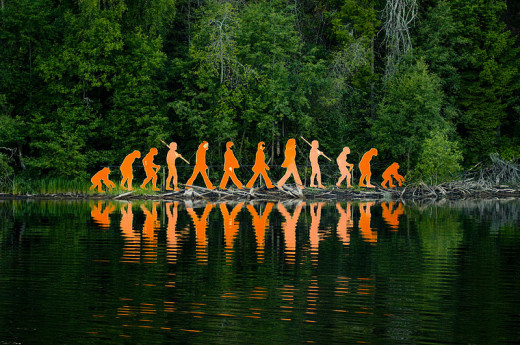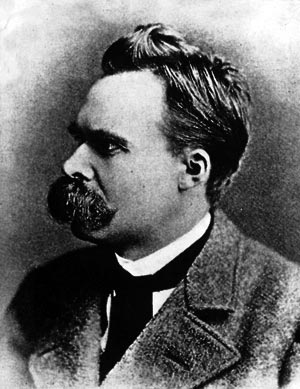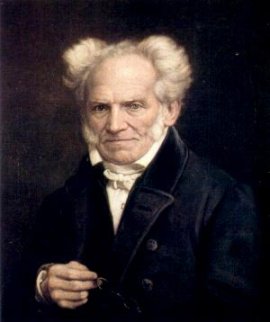The meaning of Life, the Universe, and... well... everything, I guess.

What in God's name is this hub about?
To ask the question "Why?" is seemingly one of the most natural things for human beings to do. It is the question that at first we pester adults with, then as we grow older, they pester us with it, until finally we are left pestering ourselves with it. Why? Why? Why?
Why what? You may ask - and it is a pertinent question, though one to which you already have the answer. It is hardwired into us all. Why anything? Is the question in its simplest term. Or to put it as Heidegger did, "Why something rather than nothing?"
Philosophy is a luxury afforded to a species that is privileged in time. Our cognitive abilities have let us shape the world such that very little of our time (in the western world) is spent worrying about where the next meal is coming from or how we're going to shelter from harsh weather conditions. I doubt stone-age man was commonly struck down with any overbearing existential angst in his average lifespan, let alone day.
It is a form of suffering which we can (unlike other forms) actually be grateful for and proud of. It is a certain point of pride when introspection on such a level as we have reached is achieved. This painful questioning, and probing of our curious and persistently evolved minds has led us to create complicated concepts of basic human and animal rights, of the objective value of life... These ideas are inexplicable to other species which have only the time to be concerned with their immediate survival and mating needs. Not even considering they haven't got the neurological extra space and processing power...
No... we can give ourselves a pat on the back (or a nod to the heavens if you are this way inclined) about how far we've come. However, we are left with all this capacity for reasoning, and some big metaphysical queries burning holes in our philosophical agenda. We must eternally return to these with ever improved and newer spec versions of the potential answers.
So... it's worth a once over at least, eh?
In this hub I will be looking at some of the different answers people have posited in response to these eternally bothering philosophical quandaries. I will try not to lay on the language of metaphysics too heavy because I genuinely want this to be a stimulus for discussion and I find the overly wordy nature of some philosophical texts does put some folk off. So stand easy, I'm not going to try to baffle you with too much wordy bullsh*t. I'm going for a straight forward, no nonsense approach... I hope.
A definition of "The Universe"
1. All matter and energy, including the earth, the galaxies, and the contents of intergalactic space, regarded as a whole.
2. a. The earth together with all its inhabitants and created things.b. The human race.
3. The sphere or realm in which something exists or takes place.
http://www.thefreedictionary.com/the+universe
A Definition of the term "exist"
1. To have actual being; be real.
2. To have life; live: one of the worst actors that ever existed.
3. To live at a minimal level; subsist: barely enough income on which to exist.
4. To continue to be; persist: old customs that still exist in rural areas.
http://www.thefreedictionary.com/exist
Why anything at all?
So why does anything exist? That's a biggy. It must be stressed that this is not a mechanistic or causal type question such as: How did anything come to exist? Instead our question refers to purpose of existence. For precisely what reason did everything that is, start to be? Where do we go from here then?
Well the best place to start in this sort of philosophical inquiry is to make sure that we are secure in our understanding of what we actually mean by using the terms we have. After all - there's no sense trying to answer a question we don't fully know the meaning of! The two terms that are really of note, and worth taking the time to define here are: "exist" and "anything".
Now, the term "anything" is used quite loosely in this question and we can see right off that it is actually interchangeable with different terms such as "the universe" or "everything" in this context. This is broadly because... they mean the same thing. In the aim of being clear about what we mean then, I reckon interchanging "anything" with "the universe" actually pins down the specifics of our inquiry. Why does the universe exist? Since anything and everything that could exist would be doing so within the universe (leaving aside theories of multiple universes just for the moment) then changing our question in this way kinda covers all bases. The definition of "Universe" is in the first blue box on the right.
The second term in question is "exist". What are we asking of a thing when we ask whether it exists? Basically, when we say that a thing exists, we are positing that it has actual being, or is real (full definition in the second blue box on the right).
So for the sake of clarity (he yawns) what we are asking is: Why did the universe come into being?
Right! Now for a look at what philosophers have had to say on the matter...
God and his propounders


Contender No. 1
This is the classic theological tradition of views. Which simply put, states that we exist because God wills that it should be so (or some variety to that effect). We are thus to give thanks and praise and what-have-you for the honor of being given this opportunity to suffer and die, using the whole awful process as some kind of lesson for our soul. If we pass the final examination we get to go to heaven, if not then eternal damnation and all the heavy metal bands and divorce lawyers you could dream of will be yours for company. Forever. Bugger.
There is something to be said for this nice straightforward view of the reason for everything. The thought that at least there's someone "up there" who has some kind of clue what the hell is going on and why, is comforting to say the least. But is it true? Ahhhh - you know the arguments already and I'm not here to persuade you. If you believe in God, then this is the basic fall-back position. Don't panic! There's a divine plan! Well... after that's said you don't really need any of the other reasons that come after. This doesn't mean you shouldn't be aware of them though, so don't be lazy and switch off here!
Major proponents of this manor of thought would be... pretty much all of the theist philosophers of the Catholic tradition. Thomas Aquinas etc. All wonderful thinkers in their own right but limited by the constraints of an overbearing patriarchal censor.
Existentialists of note





Contender No.2
The second camp is an exciting and turbulent one from which the most exciting developments in philosophical thought have sprung in recent years (recent being the last 200 years or so, the cogs of philosophical inquiry grind slowly). This is broadly the Existentialist view of existence of which there are two main versions, the atheistic and the theistic. I shall start with the atheistic version. For those new to the concept, existentialism propounds the view that "existence precedes essence". That is to say, we exist/come into being and then become who we are through living our lives. This means that there is no prior plan for how we are meant to be. This is actually a very moral point of view to take because it forces us to accept responsibility for the choices we make in life. We are not designed in a certain way and thus in some way to be forgiven our bad choices. Instead, being the sole designers of our life's path we must take full consideration for the moral stance of our behavior because we are solely responsible for it. We cannot blame fate, or the stars' alignment on our day of birth... no. The buck stops with number one. The atheist existentialist creates the meaning of his existence - he/she chooses their meaning and is responsible for living their life "as a project".
The theistic version of existentialism (which came first chronologically speaking) differs only really in that it still posits a creator God as the father of all creation. In this case, though there is a clear reason for existence in that one has been created by the divine source of all things, one must endeavor to live an "authentic" Christian existence taking responsibility for one's choices. Kierkegaard (widely recognized as the father of existentialism as a whole) was pretty revolutionary and heretical in his views when he expounded the idea of a personal relationship with God outside of the authority of the church. He saw many of the hypocrisies of organized religion and criticized the conflicts he could see between Christian teachings and the way the church carried out its dealings in the world. For Kierkegaard a true Christian was answerable to only himself and to God in how he went about his life. He also had a great deal to say on the subject of faith - in fact I believe the term "leap of faith" is actually attributed to him. Though I still have some personal difficulty with faith of the sort he requires in his theology, I cannot deny that his book "Fear and Trembling" is the most beautiful and convincing account of faith that I have come across. I recommend it to believers and non-believers alike - it's good food for thought.
Famous existentialists (though not all would willingly label themselves so) of the atheistic bent would be such names as: Friedrich Nietzsche, Martin Heidegger, Jean Paul Sartre, Michel Foucault, and the list goes on. Each in their turn rocked the philosophical world to its core with their paradigm shattering ideas. Although I could, with pleasure, go on at you for hours about the various pros and cons of these learned fellows' ideas and biographies... you'll be thankful to hear that this is not within the remit of this hubs purpose. I must remain authentic to that purpose and so we move on.
The Theistic and Atheistic versions of Existentialism
Arthur Schopenhauer

Contender No.3
Finally (and yes I know these three are not an exhaustive list - just the most popularly held views) we have the embarrassingly cynical member of the trio. We can say broadly that the other two popular views are in some ways indirectly, and in many others openly a refutation of this school of thought. Yes, I'm gonna say it... Nihilism. There... that was easier than I thought it'd be! Basically, a Nihilist is somebody who believes not only that we can't know the reason for existence, in fact they actively assert that there is no objective point at all. Existence is utterly arbitrary to the true nihilist - all morality is purely cultural, there is no such thing as true responsibility and there is an odd kind of assumption of the worst case scenario that our universe is basically a chaotic aberration in what was otherwise a perfect sea of nothingness. At the very least - existence doesn't overly matter all that much and as far as the nihilist is concerned you can like his views or lump'em because your opinion means diddly-squat from where he's sitting. In this (rather depressing) view of reality all morality comes down to in the end is consequences. The right thing to do is the thing which you want to do balanced against the likelihood of negative outcomes. Thus you don't go around killing folk because that sort of behavior increases the likelihood of you getting killed. You don't go stealing things, not from any sense of moral responsibility, but rather because you've been arbitrarily born into a culture which has rules against that sort of thing and you're likely to have a rubbish time of it if you get caught perpetrating said misdemeanors.
This is a very strong anti-theological stance to take. In fact it's pretty much polar opposite. Fortunately, most people recognise that it is inherently selfish to such an extreme that it actually goes against the grain to live by these standards unless one is completely divorced from the society one lives in. There is a word for this... it's psychopathology. Yup - this philosophical point of view is closer to a pathological mental illness than a truly tenable position. However, that being said, there has been no conclusive refutation of it. Religion has no answer since it cannot prove God's existence, which awkwardly a nihilist would require. Existentialism does a better job but still... it is open to criticism because existentialism is basically a subjective philosophy. Even if we create our meaning this does not refute the nihilists claim that there is no objective meaning. It is a bit of a quandry and no mistake. If there is any problem in philosophy worth worrying about... it's this.
Of course... my own bias is coming through here... it is so hard not to do that damnit! :)
If one pressed a die-hard skeptical scientist to nail down whether he thought their was meaning in the universe from observation of it alone... then he would likely err on the side of caution and say there is no objective purpose. This does not deny the existentialist view a look in - but it looks all clear for nihilism logically speaking. Hmmm. Where can we go from here if we are to maintain our naturally sunny dispositions?

Does existence have meaning for you?
Which of the 4 options do you lean towards if any?
Conclusions...?
As all decent philosophers of open mind are wont... I draw no conclusions whatsoever to help you make your mind up. You'll have to do that for yourself because, unfortunately until someone comes up with something better, your subjective opinion based upon direct experience of the nature of the world is what you have to go on. Ahem. So I have given you three different angles on whether there is a meaning to existence, and from where that meaning is derived.
1. The theological view (God dunnit so its stop worrying, there's a plan)
2. The existential view (you're in charge mate - the meaning is your choice and responsibility)
3. The nihilistic view (meaning pffffff!! Codswollap! I'm the only thing that matters and I don't matter either. So there.)
There is one last view that I haven't covered... and that's because it's common sense. Quite literally, it is the common sense view that because it seems to us in the very way our consciousness is built to interact with the world that there is, in fact, some greater scheme of things (even if we haven't figured it out yet)... then that probably is the case. At any rate, why worry overly? It's difficult enough to pay the bills and get the kids to school on time without having to consider the futility of existence whilst doing it.
Of course, that is a trite remark and I only half mean it. I wouldn't spend so much time thinking about such things if I didn't think they mattered. I shall use these last few words to end on a positive note with my personal view on things which you may take, leave discard or discuss at your leisure.
I lean towards a broadly non denominational theistic existentialism with a hint of common-sense thrown in. Got that? :)
Basically I do believe in a higher power - but my inherent distrust of people who claim they know "the one truth" (which they got from a book) makes me eschew the tenets of organized religion on the whole. I believe that we are responsible for our choices and we are very much in the driving seat when it comes to the path of our lives and achieving (or not) or potentials. I also believe that personal experience is all we have to go on (I've never had someone else's experience so there's no frame of reference for anything else) and so in the end it's a matter of picking what seems right and coherent with the rest of my world view, whilst retaining an optimistically open mind towards future revelations. I accept that my understanding of the universe I inhabit is fallable and I draw only the best conclusions I can from the information available to me through my experiences. I love it when someone shows me through a critique or well reasoned argument that my world view needs adjusting somehow. Being shown to be wrong is an opportunity not only for learning humility, but of genuinely getting closer to what is really real. The truth - and the beauty inherent in that impossible ideal is worth every knock along the way.
Anyhoo - that's what I reckon. There I've given my ten pennies-worth... your turn :)
Some other hubbers' angles on the same query
- Thoughts on the Meaning of Life.
Many of us look for the meaning of life and there's an old saying that the meaning of life is a life with meaning. You don't have to look far to find a life with meaning. - The Meaning Of Life: What's Your Take?
Other relevant hubs by me
- The importance of Philosophising
A hub explaining why I believe it is important to philosophise... - Poem: Adam's lot
A poem about man's eternal search for existential meaning.











